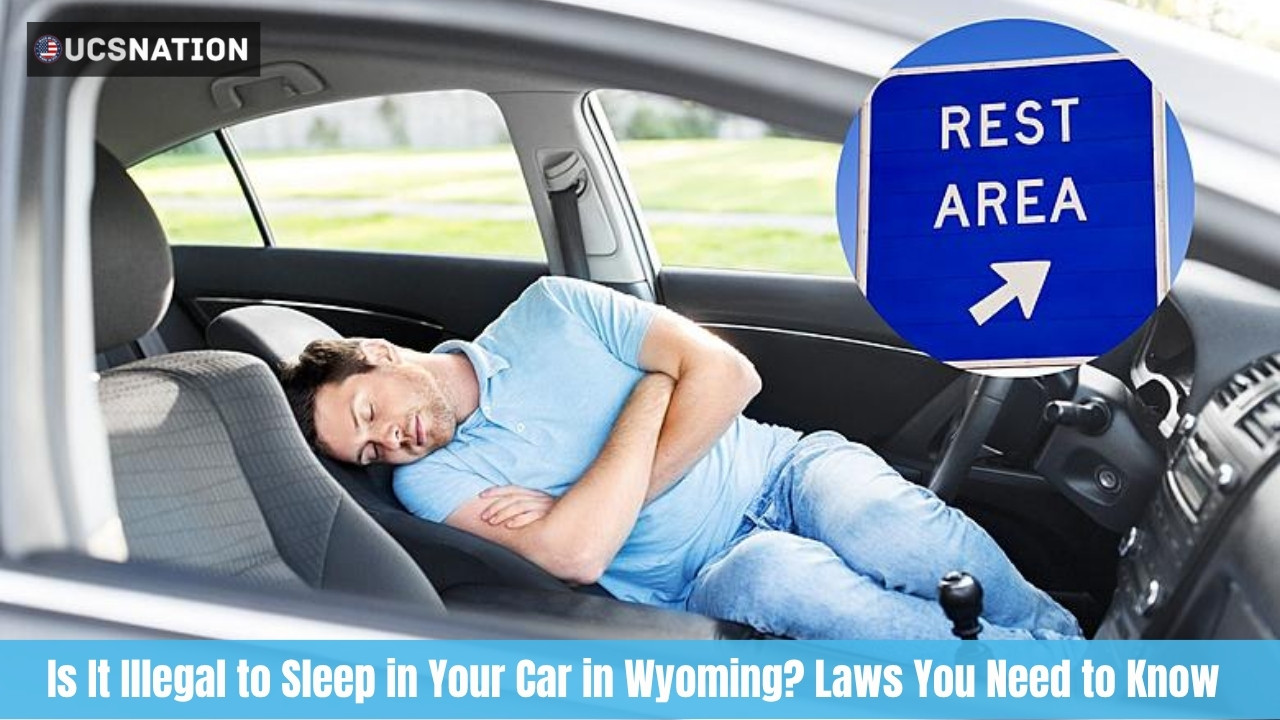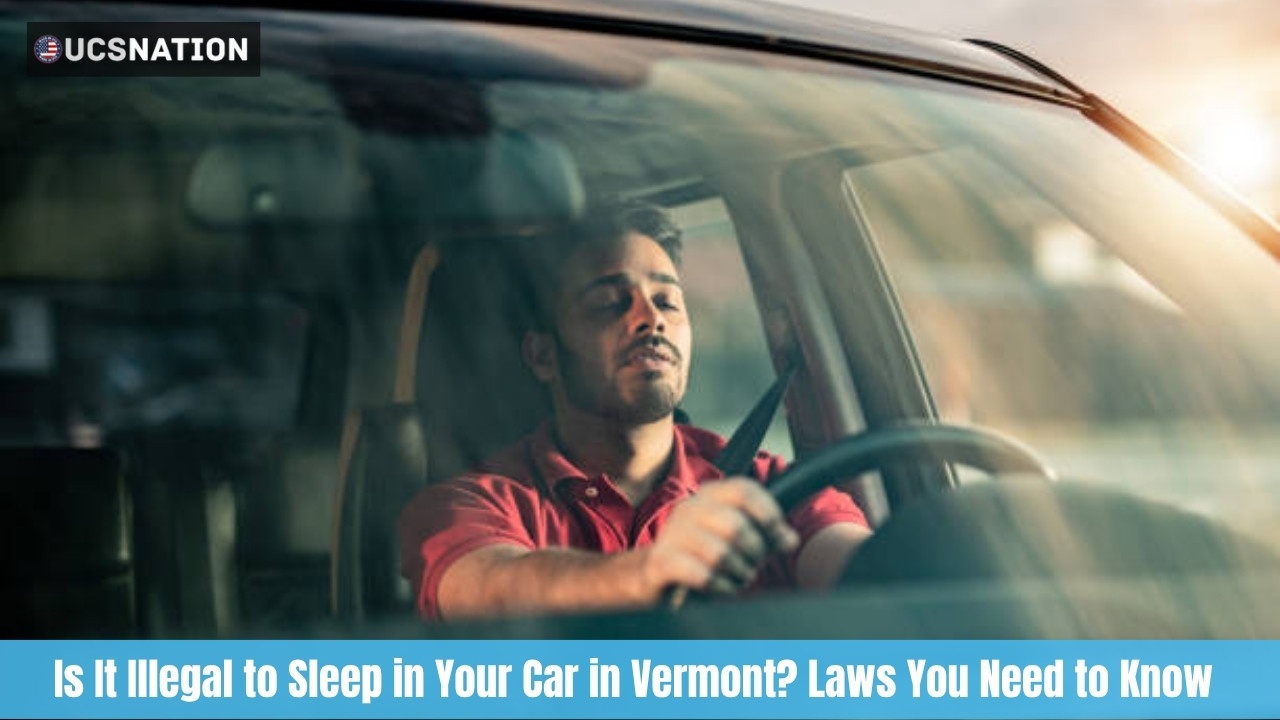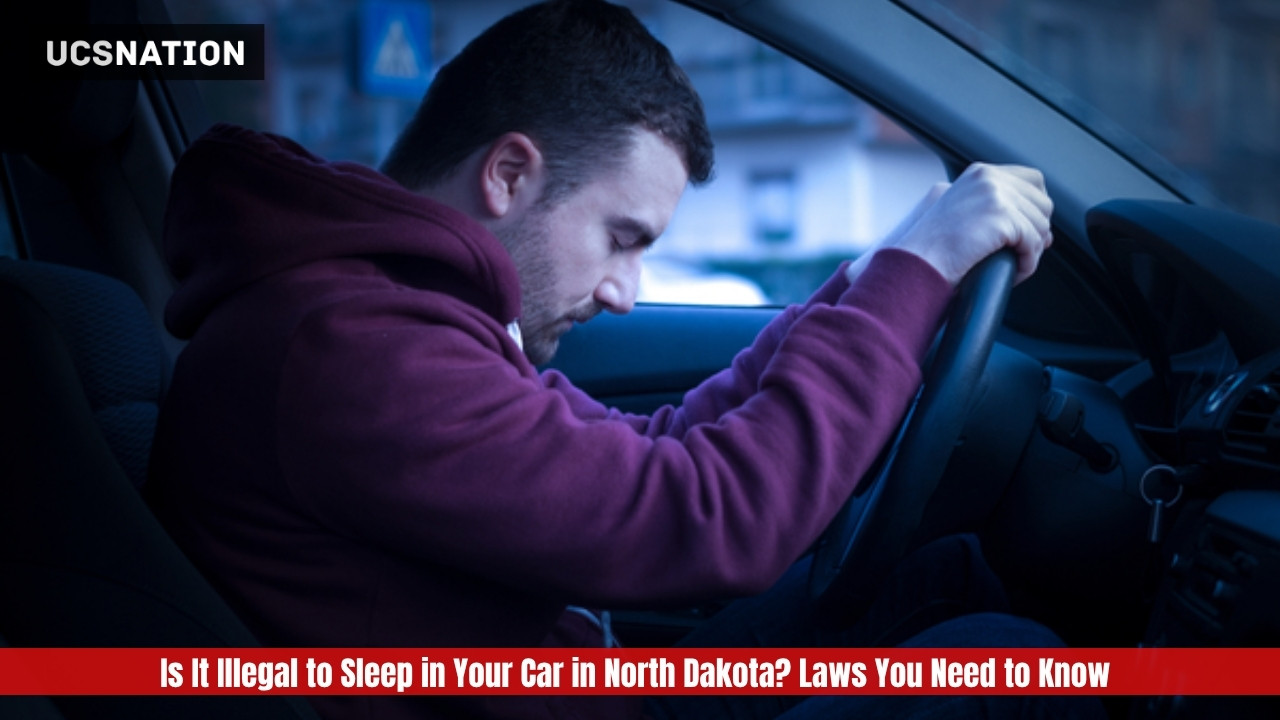The open road, a long drive, and the sudden, overwhelming need to rest. For many travelers, digital nomads, or individuals facing housing instability, a car can feel like a temporary sanctuary. But as you pull over to catch a few hours of sleep, a nagging question might surface: is this legal? In Delaware, the answer isn’t a straightforward yes or no. The legality of sleeping in your car is a complex patchwork of state-level permissions and hyper-local restrictions, creating a legal landscape that can be tricky to navigate.
While no single statewide law in Delaware explicitly forbids sleeping in a vehicle, the reality on the ground is that your location is everything. From the bustling I-95 corridor to the serene beach towns along the coast, different jurisdictions have their own rules. This article breaks down the laws you need to know, from designated rest areas to the specific ordinances in towns and cities across the First State, helping you understand where you can safely and legally rest your head.
The Statewide View: A Lack of a Universal Ban
At the state level, Delaware law is relatively permissive. There is no overarching statute that criminalizes the act of sleeping in your personal vehicle. In fact, the state’s approach to its official rest areas suggests an understanding that drowsy drivers need a safe place to stop. The primary state-level laws that could apply to a person sleeping in their car are related to public safety and obstruction. For instance, if your vehicle is parked in a way that blocks a street, creates a hazard, or impedes traffic, you could face legal trouble, but this would be due to the parking violation, not the act of sleeping itself.
This lack of a uniform state law means that the authority to regulate this activity falls to individual counties and municipalities. As a result, a driver can cross from a jurisdiction where sleeping in a car is tolerated into one where it is strictly prohibited without even realizing it.
Designated Havens: Delaware’s Rest Areas
For travelers looking for a sanctioned place to rest, Delaware’s official rest areas are the most reliable option. The state operates two major rest stops, each with its own set of rules.
-
Smyrna Rest Area (Route 1): This modern and well-maintained facility is a popular stop. While signs explicitly state “No Camping,” this prohibition is aimed at preventing people from setting up tents or other external camping equipment. Sleeping inside your vehicle is permitted. However, there are time limits: a 6-hour parking limit for cars and an 8-hour limit for trucks and RVs. This is generally sufficient for an overnight rest before continuing your journey.
-
I-95 Welcome Center (near Newark): This busy travel plaza is more lenient. There are no posted signs prohibiting overnight parking or establishing strict time limits. This makes it a de facto safe zone for drivers needing to sleep for an extended period. While it is open 24 hours, its high traffic volume means it is less private than other locations.
State authorities prefer that tired drivers pull over and sleep in their cars at these locations rather than continuing to drive while drowsy, making rest stops a key part of road safety infrastructure.
Local Ordinances: Where the Rules Get Complicated
The real challenge to sleeping in your car in Delaware comes from local city and town ordinances. Many municipalities have enacted specific laws to restrict or ban the practice, particularly in tourist-heavy areas and residential neighborhoods.
The Beach Towns: A Clear “No”
Delaware’s popular coastal communities have taken a firm stance against sleeping in vehicles. Towns like Lewes, Rehoboth Beach, Dewey Beach, Bethany Beach, and Fenwick Island all have ordinances that make it illegal to sleep in your car overnight. In Fenwick Island, the rules go further, also banning cooking, using toilet facilities, or otherwise “living” in a vehicle. These laws are typically enforced to manage the high volume of tourists, preserve public parking for beachgoers and shoppers, and maintain the aesthetic of the resort areas.
Cities and Towns with Restrictions
Beyond the beaches, many of Delaware’s other municipalities have rules that limit or prohibit sleeping in cars, often through overnight parking bans in certain zones.
-
Georgetown: This town has one of the most explicit ordinances. Its code makes it “unlawful for any person to sleep, lie or occupy as sleeping quarters” in any vehicle parked within the town’s corporate limits.
-
Wilmington and Dover: As the state’s largest cities, both Wilmington and Dover have regulations concerning overnight parking, especially in public spaces like parks and downtown streets. These rules are designed to prevent long-term vehicle habitation and manage urban congestion.
-
Newark: Home to the University of Delaware, Newark enforces strict overnight parking regulations in both residential and commercial areas to manage parking for residents, students, and businesses.
-
Middletown: In suburban areas like Middletown, ordinances often prohibit long-term parking in public lots or on streets to prevent vehicles from being used as residences.
Why These Laws Exist
The motivations behind these local laws are varied. In many cases, they are driven by public safety concerns and the desire to prevent the establishment of homeless encampments. Business owners may worry about vehicles occupying prime parking spots, while residents may have quality-of-life concerns about people living in cars in their neighborhoods.
However, these regulations also highlight a significant social issue. The rising cost of housing has forced a growing number of individuals and families across the country, including in Delaware, to use their vehicles as a last resort for shelter. Anti-sleeping ordinances can place these vulnerable individuals in a difficult position, forcing them to choose between breaking the law and having nowhere to sleep safely.
Tips for Safely and Legally Resting in Your Car
If you find yourself needing to sleep in your car in Delaware, following a few key strategies can help you stay safe and avoid legal trouble.
-
Prioritize Official Rest Areas: Your safest and most legally secure options are the Smyrna Rest Area and the I-95 Welcome Center.
-
Know the Local Rules: Before settling in for the night, try to check the local ordinances of the town you are in. A quick search for the town’s name plus “overnight parking” or “sleeping in vehicle ordinance” can often provide clarity.
-
Be Discreet: If you are in an area where the rules are unclear, discretion is key. Arrive late, leave early, and avoid drawing attention to yourself. This means no setting up chairs, cooking outside, or leaving belongings around your vehicle. The goal is to appear as just another parked car.
-
Choose Your Spot Wisely: Well-lit hospital parking lots are sometimes suggested as an option, as they are open 24/7 and accustomed to cars being present at all hours. However, this is not a guaranteed legal right and you could still be asked to leave. Avoid parking directly in front of residences or in the main lots of active businesses.
-
Stay Safe: Always lock your doors. Crack a window for ventilation, but not so much that it compromises your security. Park in a well-lit area to deter potential crime.
Ultimately, while Delaware doesn’t have a statewide ban on sleeping in your car, the practice is heavily restricted at the local level. Your ability to rest without being disturbed depends almost entirely on your location. By sticking to designated rest areas and being mindful of municipal rules, you can navigate the state’s complex legal landscape and get the rest you need.















Leave a Reply